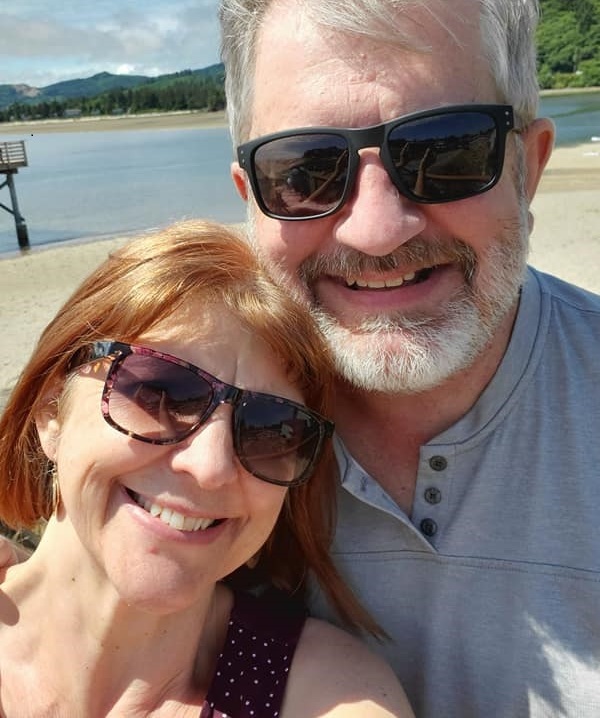10 Ways to Overcome Your Toughest Doubts

Even the most active Christians struggle with doubts. They’re a natural byproduct of taking the Bible seriously while living in a fallen world. If left unaddressed, however, doubts will fester in our soul and can lead to a lack of faith or outright unbelief. So…
Whatever we do, we can’t ignore doubts!
It’s definitely not a sin to have doubts—again, everyone has them. Don’t pretend you don’t have doubts. And whatever you do, don’t hide them. Instead, deal with your doubts head-on. Address each one that comes up.
In the end, your faith will be stronger!
Doubts come in three primary flavors. The first are intellectual doubts. The second are emotional doubts. The third are physical doubts often borne out of serious health crises and life-and-death situations. All three are equally valid, important, and essential to address.
Here then are 10 ways to overcome your toughest doubts...
Intellectual Doubts
1. Revelation
We have to get back to the question, “How do we know what we believe?” The answer is God has revealed His message in a book. It’s called the Bible. In this book we find all the answers we need for life and godliness. We don’t find answers to all of life’s tough questions. But most of them are answered with far greater authority and clarity than thousands of years of philosophy.
2. Authority
We have to address the question, “Who decides what is true?” Ultimately, the answer is God. He has stated His position quite clearly in the Scriptures. God’s Word is our absolute authority for faith and practice.
3. Orthodoxy
We have to answer the question, “Where do we draw the lines?” The answer is in the classic, orthodox teachings of the Church. Those teachings are based solidly on Scripture.
Then again, we have to consider: Do my doubts and questions have any bearing, any weight, on the core of orthodoxy? No. By definition, these core Gospel truths were lived out by Jesus and written out by His apostles nearly two thousand years ago.
For this very reason, I should not be afraid to doubt and ask questions. Tough questions. Skeptical questions. Doubting questions. Even angry questions.
These are the very kinds of questions that the biblical David asked some three thousand years ago, fully confident that God was pleased to hear his psalms. All of his psalms. Even the ones we’d rather skip reading in the middle of our Bibles.
4. Inspiration
We have to tackle the question, “Is everything God says in the Bible, through the prophets and apostles, inspired by God Himself?” Scripture itself says, “Yes.”
In the second and final letter that Peter wrote to the church at large, he said, in essence, “You can believe everything I’ve told you about Jesus. Just as Jesus told me, I’m going to be martyred. I’m going to be nailed to a cross and die because I won’t stop believing in Jesus. If I had any doubts, there’s no way I would die such an awful, horrible, terrible death. But how could I have any doubts? I’m still 100 percent sure and certain about the gospel message. Why? Because I was an eyewitness from beginning to end.”
Peter wasn’t the only eyewitness, of course. All of the other apostles were eyewitnesses. And so were Mary Magdalene and other women and men who saw Jesus die, and who saw Jesus alive from the dead.
5. Doctrine
We have to wrestle with the question, “What do I believe?” The answer is in the teachings of your particular denomination or church. To the degree that they’re based solidly on Scripture, you can bank on them. The answer is also found in your own beliefs and convictions—and questions and doubts. This is particularly important if something Scripture says seems too good to be true.
Emotional Doubts
6. Life Is Hard
If life has been particularly painful, we’re quickly aware of how little we understand. Or we may have let God down and felt disillusioned with ourselves. Or the positive spiritual feelings we enjoyed have disappeared. Or we no longer feel any connection with God. Or we are struggling with depression.
In the last chapter of his Gospel, Matthew says the apostles struggled with doubts and disbelief for days and weeks leading up to Ascension Day. Mark, Luke, and John do the same. But why?
Because we need to remember what doubts and disbelief feel like. They’re natural, normal, and yet awful feelings. So awful we tend to react negatively when others tell us that they’re experiencing such feelings.
Yet Jesus wants us to remember: This is what doubts and disbelief feel like. Don’t forget it. And don’t come down on anyone who’s already feeling awful. Instead, listen. Love. Let them talk. Allow them to see Me in your eyes. At the right time, when you are the quietest, the Holy Spirit will speak truth and comfort to their soul. Watch and bear witness as their faith reemerges and grows stronger and more robust.
Again, emotional, intellectual, and physical doubts are equally valid, important, and essential to address with the Lord’s help and guidance.
7. God Is Good
Scripture makes it clear that Jesus loves to remove people’s emotional doubts. Two complementary examples are found in Matthew 14:25-31 and Luke 24:36-43.
In the first account, Jesus appears to His disciples walking on water. In the second, Jesus appears to His disciples out of thin air. Both times it’s night. Both times the disciples are scared out of their wits. Both times Jesus says, “It’s Me!”
In the first, Peter starts doubting again. In the second, others doubt. In the first, Jesus calms the raging storm. In the second, Jesus eats some dinner. One is a major miracle. The other proves the world’s greatest miracle has already taken place.
Both times Jesus gladly erases their doubts. And both times the disciples finally believe, worship Jesus, and rejoice!
8. No Answers Yet
What do we do with emotional doubts and questions we can’t answer?
In the realm of the natural world, not understanding why things work the way they do can lead either to seeking more satisfying answers or to acceptance. A majority of people are baffled, for instance, when asked to explain how electricity works. How does the power of the churning water through a dam become a refined energy source that comes through wires into our homes and is controlled by simple switches? We may not understand it—but we still accept it and gladly use it.
The same is true in the spiritual realm. As finite individuals, we certainly can’t even begin to explain who God is, let alone how or why He designed faith and spirituality as He has. In fact, our comprehension is very limited. Yet we still accept Him, read His Word, pray, and converse with His active followers

Photo Credit: ©GettyImages/Ridofranz
Physical Doubts
9. Pastoral Care
These days I’m doing more pastoral counseling than ever. That’s true even though I officially stepped down and retired from church leadership 24 months ago. Such pastoral counseling often takes me to homes and hospitals.
Jeanette has loved the Lord all of her life, but near the end she didn’t feel sure of her salvation. You could see it in her face. Her demeanor was so sad. So, I spent time with Jeanette in her home with her daughters Celia and Audrey nearby.
After listening to Jeanette tell me how she was feeling, including worries for her family, I told her I wanted to address the happy subject of heaven.
First, I reminded Jeanette that she always has believed Jesus Christ is God’s eternal Son, and that 2,000 years ago He came to earth and lived a perfect life. Jesus taught God’s words to the people and performed hundreds of miracles. Yes, of course!
Then I used 1 Corinthians 15:3-4 to remind Jeanette that she wholeheartedly believed the essential Gospel message: “Christ died for our sins according to the Scriptures, that he was buried, that he was raised on the third day according to the Scriptures.” Again, of course!
Based on her confession of faith, I went on to assure Jeanette that the Lord would surely welcome her with open arms in heaven. Then we had a wonderful time of prayer together.
10. Personal Crises
I’ve had to face eternity myself on many occasions. Except for military veterans, I don’t know anyone else who has survived 27 near-death experiences. I’ve been in the hospital 13 times in the past 7 years alone.
The middle of this summer I went to stand up. Instead, I collapsed. It was a terrible fall. After my wife found me, she called 9-1-1 and an ambulance crew rushed me to Providence Portland’s Critical Intensive Care Unit (CICU). Later my medical team started telling me the same story over and over: “You would have died if you hadn’t landed here a few days ago.”
In the hospital, I radiated the love of Jesus Christ, including sharing the Gospel with my discharge nurse. I was thrilled by her positive response. Nothing is more exciting than leading someone to Christ.
Once I returned home, however, my mood changed. I found myself feeling very angry. I knew what that meant. I was angry about my 27th near-death experience. What’s more, I wasn’t angry at my medical team and I certainly wasn’t angry at my wife, Renee. That meant I was angry at God. I stayed angry for days. I still read and studied Scripture. I still spent long times in prayer. But I was burnt toast.
I told my best friend, Dr. Marty Trammell at Corban University, that I was emotionally burnt out. Uncharacteristically, Marty corrected me rather quickly. “David, you’re not emotionally burnt out. You’re physically burnt out.” Even more uncharacteristically, I argued with Marty. He won, and understanding that huge difference proved to be the key to overcoming my most serious faith crisis in 25 years.
Yes, our bodies are intimately connected to our souls. But some faith struggles are intellectual, some are emotional, and some are borne out of physical crises. Nearly dying from sepsis was terrible. My body (and soul) would rebound in time. I just needed to trust God and rest. Sure enough, I rebounded with an even more robust faith in my Lord and Savior.
My story isn’t dramatic, but it reinforces the point that everyone struggles with doubts. God wants us to embrace those doubts as one of His most effective ways of strengthening our faith.
How are you struggling? Intellectually? Emotionally? Physically? Use this article to deal with it head-on. In time, may you experience increasing faith, hope, love, joy, and peace.
Photo Credit: © Getty Images/tommaso79

Originally published September 28, 2021.





